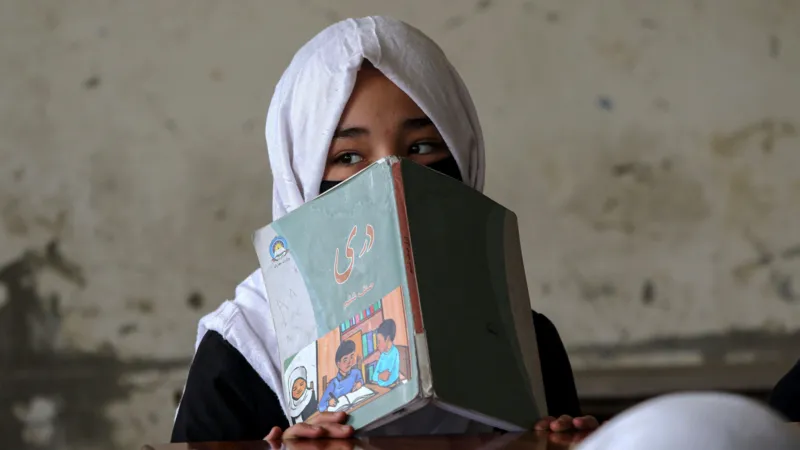ICC Issues Arrest Warrants for Taliban Leaders Over Persecution of Afghan Women and Girls
Kabul, Afghanistan – In a significant development for international justice and women’s rights, the International Criminal Court (ICC) has announced the issuance of arrest warrants for two prominent Taliban leaders. The warrants target Supreme Leader Haibatullah Akhundzada and Chief Justice Abdul Hakim Haqqani, who are accused of orchestrating a systematic campaign of persecution against women and girls in Afghanistan since the Taliban regained control of the country in August 2021.
The ICC, based in The Hague, stated that there are “reasonable grounds to believe” that these leaders have committed crimes against humanity through their severe restrictions on the fundamental rights and freedoms of Afghan women and girls. These measures have severely curtailed their access to education, employment, and public life, effectively creating a climate of gender-based oppression. Reports indicate that girls over the age of 12 are barred from attending school, and women are excluded from numerous professional roles, further exacerbating their marginalization.
The Taliban leadership has vehemently rejected the ICC’s actions, declaring that they do not recognize the court’s jurisdiction. A spokesperson for the Taliban characterized the arrest warrants as a “clear act of hostility” and an “insult to the beliefs of Muslims around the world.” This stance underscores the deep divide between the current Afghan administration and international legal bodies.
Beyond educational and employment restrictions, the Taliban has also imposed stringent limitations on women’s freedom of movement, requiring a male chaperone for travel outside the home. Furthermore, decrees have been issued dictating that women must lower their voices in public, contributing to an environment of pervasive control and suppression. The United Nations has previously condemned these policies, describing them as amounting to “gender apartheid.”
The ICC’s statement highlighted that while the Taliban has implemented various rules affecting the general population, the specific targeting of girls and women based on their gender represents a grave violation of international human rights law. The court’s prosecutor, Karim Khan, had previously signaled his intent to investigate these alleged crimes, citing criminal responsibility for persecuting Afghan girls and women, as well as individuals perceived by the Taliban as not conforming to their ideology regarding gender identity or expression.
The Taliban government, however, maintains that it upholds women’s rights in accordance with its interpretation of Islamic law and Afghan culture. This assertion contrasts sharply with the views of numerous international human rights organizations and the Afghan population.
Haibatullah Akhundzada assumed the leadership of the Taliban in 2016 and has been the de facto supreme leader since the withdrawal of US-led forces in August 2021. Abdul Hakim Haqqani, a close associate of the Taliban’s founder Mullah Omar, has played a significant role in negotiations with international actors.
Human Rights Watch has lauded the issuance of the arrest warrants, urging the ICC to broaden its investigation to encompass other abuses committed by the Taliban, as well as by other groups operating in Afghanistan, including the Islamic State of Khorasan Province, former Afghan security forces, and US personnel. The organization emphasized that ensuring equal access to justice for victims of all perpetrators is crucial for addressing cycles of violence and impunity in the region.
The ICC’s mandate is to investigate and prosecute individuals for the most severe international crimes, including genocide, crimes against humanity, and war crimes, particularly when national authorities are unable or unwilling to do so. However, the court relies on member states to enforce arrest warrants, meaning the practical implications of these warrants will depend on international cooperation.

